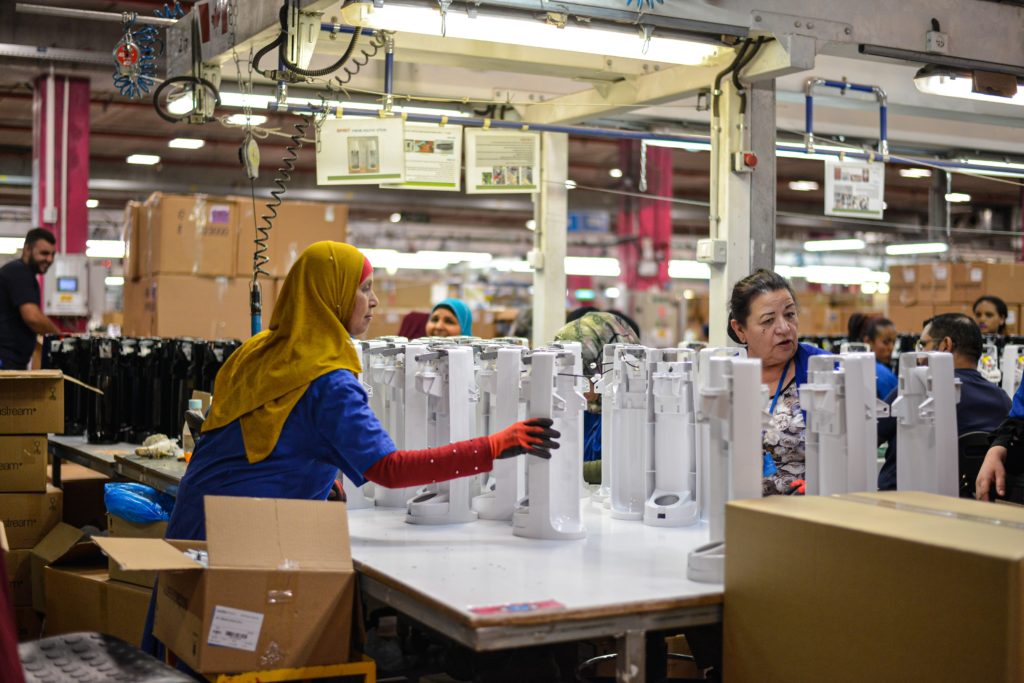Earlier this year, a ground-breaking international agreement was in jeopardy.
The Bangladesh Accord, a binding agreement between global garment brands, global union federations and Bangladeshi unions, signed after the catastrophic collapse of the Rana Plaza factory in 2013, was an unprecedented experiment in creating a building safety inspection program for the Bangladesh garment industry. The experiment worked, creating legally-binding mechanisms to ensure enforcement, and encouraging transparency and co-operation on achieving results, the Accord vastly improved the building and fire safety infrastructure in the country’s garment industry, and put worker training and grievance systems at the centre of the model.
When local opposition from garment manufacturers and subsequent local legal decisions threatened to negate the progress made under the Accord, the participating companies and unions worked with local authorities to create new in-country mechanisms to carry on the work. However, with the expiration of the agreement’s international governance mechanism – including the vital transparency, sourcing, and legal accountability provisions – scheduled for the end of May, 2021, the parties signed an interim three-month agreement and began negotiations to re-invest in the Accord. Importantly, those negotiations included an initiative to expand the Accord model to other countries with similar worker safety issues.
As investors in global garment brands, SHARE’s clients have supported the Accord’s work since the beginning, and promoted its model and insights with the companies that we own. When the Accord’s future was in doubt, SHARE picked up the phone.
SHARE reached out to the leading organizations involved in developing the original Accord, as well as key players on the company side, to determine a viable path to success in negotiating a new Accord. We then reached out to the fourteen former Accord signatory companies that are held within our client portfolios to initiate discussions on the future of the Accord. We emphasized that as shareholders, we valued the vital work the Accord is doing, and asked each company to support the inclusion of key elements in a new Accord: legal accountability, transparency, and the expansion of programs to other key jurisdictions like Pakistan, which has also experienced far too many deadly factory fires.

In the course of discussions, companies shared concerns regarding the operational elements of a new Accord, but eventually agreed to take a similar position in the negotiations. We asked for regular updates, and kept in touch as negotiations proceeded. Shareholders, rightly, were not taking part directly in the negotiations between workers’ representatives and global brands. Instead what we have been able to do is make investor expectations clear to company executives at the companies we own, and advocate for a positive outcome that protects workers lives and rights at work.
In late August, 2021, a new International Accord was established which meets investor expectations. As the Workers’ Rights Consortium, an observer signatory to the Bangladesh Accord writes:
This new International Accord maintains the vital elements of the ground-breaking model established by the Bangladesh Accord: legal enforceability of brands’ commitments, independent oversight of brand compliance, the obligation to pay prices to suppliers sufficient to support safe workplaces, and the obligation to cease doing business with any factory that refuses to operate safely.
This model, which has already saved countless lives, will also now be expanded to other countries where such reforms are desperately needed. This is a significant achievement for garment workers who have been calling for safer workplaces for many years.
But our job was not yet done. Our next step was to urge each of those companies to sign on to the new agreement. Following another round of outreach, we can now say that all 14 of the companies SHARE engaged with, have now signed on to the new Accord. A total of 126 companies have signed on to the International Accord as of this date.
The question now for investors is whether additional companies – those that have not previously taken part in the Accord’s work – may be urged to join the new initiative, especially as it expands to other countries where they may have a larger sourcing footprint. SHARE will be evaluating client portfolios for further opportunities to support the important work of this now-global initiative.


